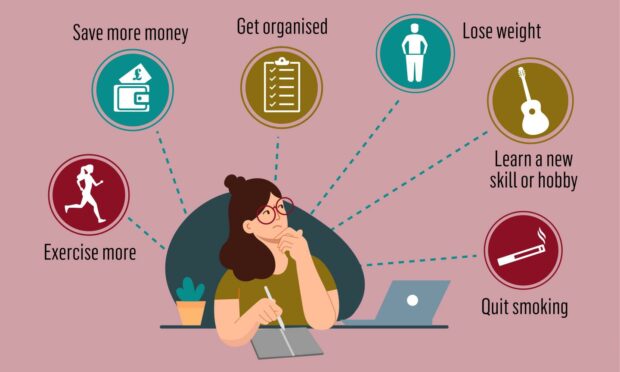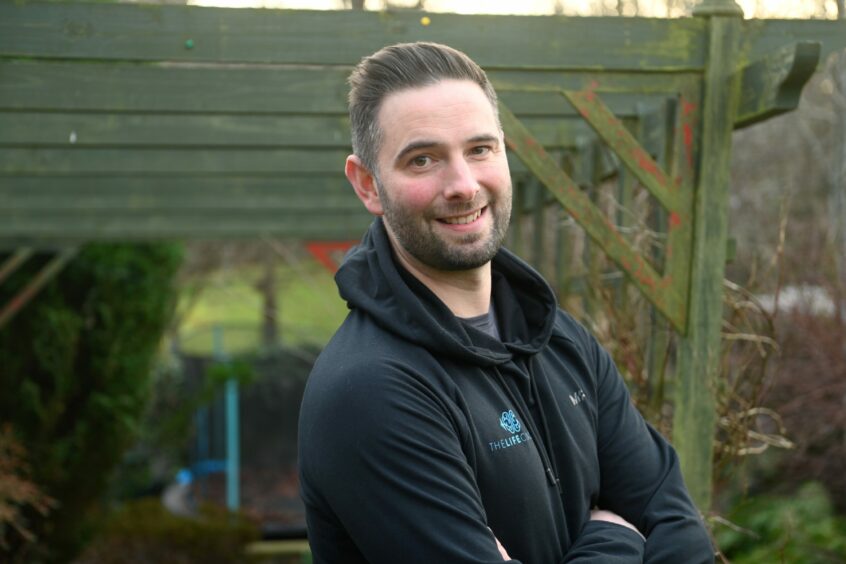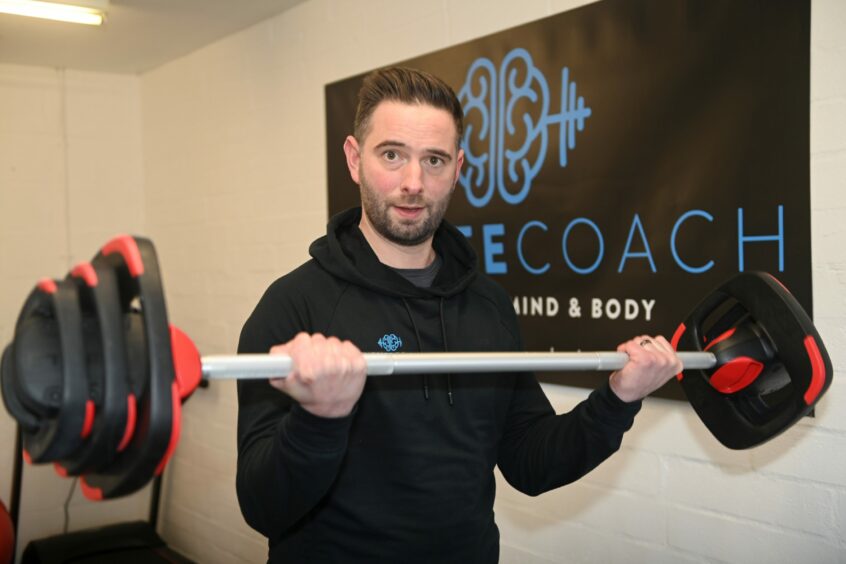It’s the start of a new year and with it comes the age-old tradition of setting New Year’s Resolutions.
But how long do you actually stick to them – and if you don’t, do you tend to beat yourself up about it?
Aberdeen life coach Ben Riddell says January is a good time to set new goals but highlights the importance of starting new challenges in the right way.
And being more realistic about the goals you’re setting is the best way to set yourself up for success.
Finding your why
You’re definitely going to need a lot of motivation and willpower to stick to the challenge.
But there’s also another important element and that’s finding out the real reason why you want to achieve it.
“Instead of just saying ‘I want to run a marathon this year’, dig deep and find out why you want to run that marathon,” Ben says.
“Finding the why makes you emotionally attached to your goal. It’s got a lot of meaning behind it.
“It then feels like it’s a must rather than ‘it would be nice to do this’, or ‘I wish I could do this’.
“You’ve got to find a goal that means a lot to you first and foremost and that’s what makes you most likely to succeed.”
Be realistic: set yourself up for success
When we set new goals they can often be unrealistic – which makes them harder to stick to.
Ben explains: “The classic situation is someone coming into see me in a gym and saying they’re going to work out five or six days a week and that’s their New Year’s Resolution.
“They manage to go for a while then fall off the wagon because they didn’t factor in all their other commitments.
“It’s best to work out what would be a more realistic number of days to strive for.
“We want to set ourselves up for the win – that’s the most important thing and that’s the key to goal setting.
“Your goals should be set up to succeed, there shouldn’t be an element of potential failure in there.”
Write down your goals
Ben is a big fan of writing down goals. And research shows you’re more likely to continue with them if you do.
This is because there’s now more of a connection between your brain and your goal.
It will reaffirm the thought and keep it in your brain for longer.
Take an immediate action
Start working on your goal as soon as you set it. This could be taking a simple step such as pinning a photo of you at your ideal weight on the fridge.
Or you could stick a note of your goal on a mirror or on the dashboard of your car to remind you of it every day.
“If it’s a weight loss goal you could, for example, write down that you’re going to lose a stone in weight and set a realistic target with the aim of achieving it over the next two or three months,” Ben says.
“Then go straight into the kitchen, open up the cookie jar and empty all the contents into the bin. Or you could collect all your snack food and donate it to a food bank.
“That immediate action sets it off in your mind that this is something that’s really important.”
Ben’s secret to breaking bad habits
It’s not easy to stay motivated all the time but positivity will help you stick to your resolutions.
And the best way to get a sprinkling of positivity in your life? Move your body.
“You can make yourself feel more positive through movement,” Ben says.
“One of my clients didn’t know why she kept going for the biscuit tin at 8pm while watching TV.
“She just didn’t know how to break the pattern.
“I suggested the next time she felt like going for a biscuit to do 30 seconds of star jumps instead. So she did, and she found that it worked.
“As soon as she did this she didn’t want biscuits any more and it’s because she changed her physiology.
“You need to be positive to achieve your goals.”
Ben, who is known as The Life Coach, has been coaching people in the north-east of Scotland for more than 20 years.
He’s also launching a podcast with local nutritionist Laura Leslie on Friday, January 7.
Progress in Mind and Body is a four-part series discussing fad diets and goal setting. It will be available on Spotify and Apple Podcasts.
More health news…
Nutritionist Laura Leslie reveals why you could be feeling sluggish after lunch



